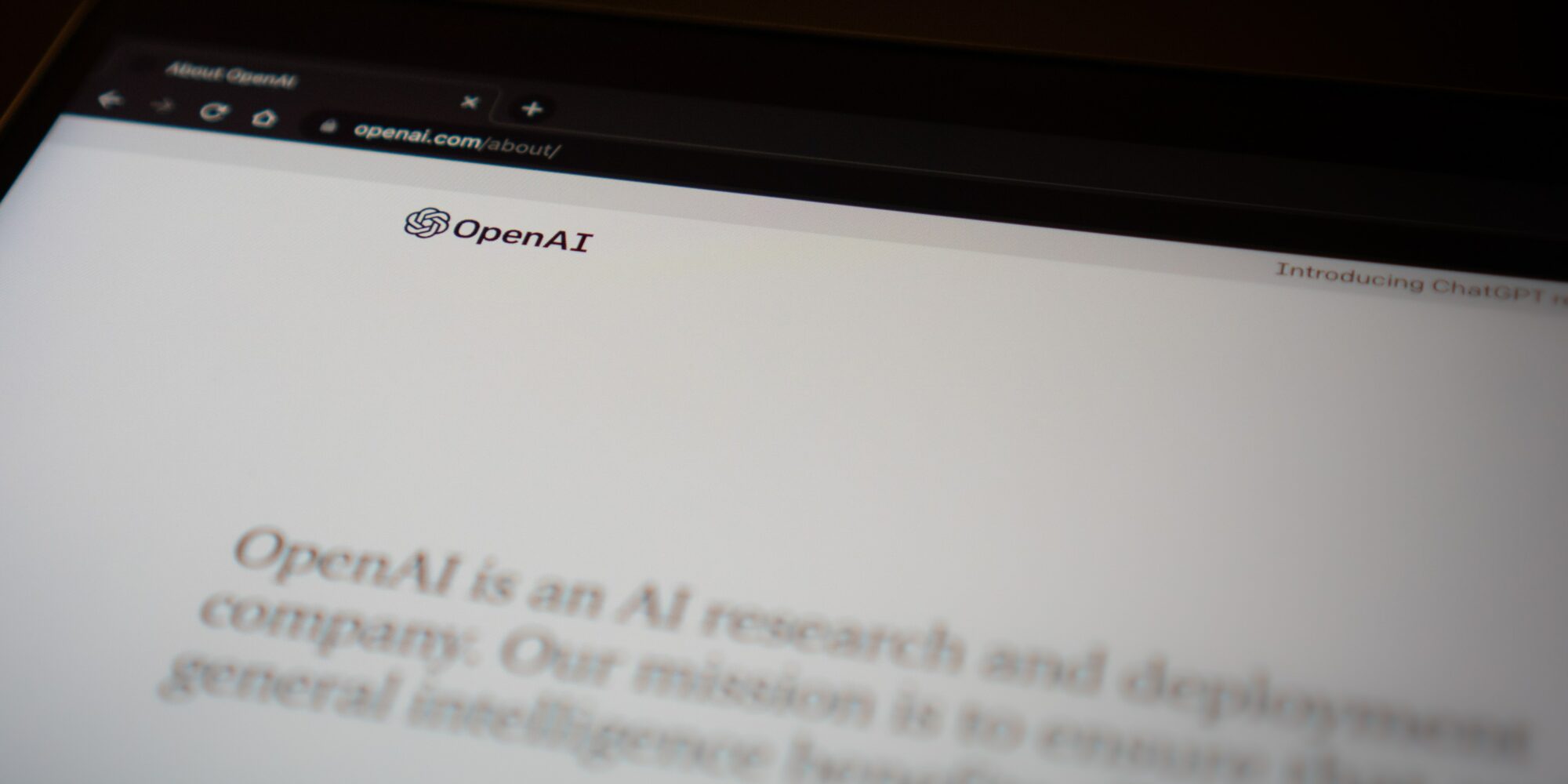
Ulta Beauty, Verishop, The Detox Market And More Retailers Discuss How AI Will Shape Beauty Retail
Be it the next stage in human evolution or a harbinger of doom, there’s no denying that artificial intelligence is scaling at almost lightning speed.
AI adoption in beauty is nothing new. From creating personalized routines to virtual try-ons and demand planning analysis, retailers have been harnessing the technology for years to more efficiently serve customers and streamline business. And if it hasn’t been adopted yet, it’s likely a consideration for the future. Brands aren’t too far behind, either.
However, with the November launch of OpenAI’s ChatGPT, many experts believe that AI has reached an inflection point in its progression. Against the backdrop of this evolving landscape, for the latest edition of our ongoing series posing questions relevant to indie beauty, we asked 10 retailers the following questions: How do you think AI will continue to shape the beauty retail industry moving forward? Are you currently using AI in your business? Why or why not?
- Michelle Pacynski Vice President of Digital Innovation, Ulta Beauty
The beauty industry today is rooted in personalization, innovation and powered by technology. We know beauty enthusiasts expect their shopping experiences to be fun, informative, relevant and convenient, and AI is helping them access that and more at their fingertips. Our personalization platform Quazi, based on AI, enables beauty enthusiasts to discover beauty tailored to their interests. We’ve also seen great engagement from guests with our AI-powered tools GLAMlab and Skin Analysis, which has encouraged us to continue innovating with new technologies.
- Jane Hong Fernandez CEO, Onda Beauty
AI is already starting to shape the beauty retail industry. From virtual try-ons for nail lacquer to lipstick shades and foundation-matching, we have been using AI for quite some time. Now, though, we're starting to see how it has the potential to truly disrupt the industry rather than enhance the industry and the digital experience.
I would argue that it can serve a significant purpose for lean start-ups, in particular. At Onda Beauty, our team is very lean, which has proven efficacious in a pullback like the pandemic as well as in the current economic conditions where costs are increasing and outpacing the possible inflationary pushdown to our customers. We hope to avoid this for as long as possible, even at the prestige price points of our products and services.
We are looking into using AI (e.g. ChatGPT) to help us with our product detail pages and many of the daily responsibilities for our digital site, which can be very time consuming for our human capital given that we are a multi-brand retailer with so many SKUs per brand. We are also using AI for analytics on the back-end and hoping that it can increase our ability to forecast social media trends, customer reviews and influencer content to identify the next clean beauty trend.
There are a myriad of ways in which I forecast AI becoming even more useful to our business, particularly for timely customer support. All of this, to me, is a good thing.
- Erica Mearns Founder, Lala & Elm
I think as AI continues to evolve, it is inevitable that it will help make the beauty retail industry be more productive and sustainable. The implementation of AI will allow customers to experience more products, especially color cosmetics, and allow for a more personalized, productive shopping experience while also driving impactful sales.
Utilizing AI in a store environment would allow us to further support our sustainability initiatives with less waste and not having to rely on testers. It would enable our customers to try more products in a safe, convenient virtual experience, limiting over-consumption through tailored beauty experiences and recommendations. It will also help to serve as an additional educational tool, guiding them on their personal shopping journey, complimenting but not replacing the human interaction that our in-store customers desire.
As a concierge-style boutique, we pride ourselves on personalized and exceptional customer service experiences in whatever channel our customers shop, in-store or online. AI can help us to further enhance this experience for our global customer base online by helping to capture and analyze data otherwise missed by the human eye.
As a relatively new business, our primary focus has been to organically grow our customer base and develop meaningful relationships with both our clientele and our brands. As a result, AI is something we are watching and contemplating as we grow, but have not implemented yet.
- Romain Gaillard Founder and CEO, The Detox Market
It is clear that AI will have a huge influence on every business in some form or another, and the beauty retail sector is certainly not immune. Our company has been an early adopter of AI, predominantly in administrative and corporate tasks. We haven't yet pushed it into physical retail.
Looking ahead, I envision a wide array of applications for AI. This could range from AI applications supporting beauty advisors with product recommendations, client outreach and training, to gathering real-time data on consumption trends for merchandise suggestions and supply chain feedback. Interestingly, I am convinced that the most impactful uses of AI are likely to remain invisible to the general public.
Let's also consider a potential counter trend: the promotion of AI-free experiences by some retailers. As the lines between the real and the artificial become increasingly blurred, there will be a universal need to reconnect with our human roots and our inner selves.
- Marti Moore Founder and CEO, Melanin Grace
AI has significantly impacted the beauty retail business, particularly within the realm of e-commerce. Its utilization spans various aspects, including consumer communication, sales promotion, analytical tools for personalized shopping experiences and inventory management. As we move forward, I anticipate the development of even more creative ways to engage with consumers, particularly in areas such as color matching, makeup application and skin analysis for targeted treatment products.
One particular challenge that my customers—predominantly women of color with a wide range of skin tones—face is purchasing foundation online. They want to find the perfect match without worrying about returning products. These time-conscious career women seek quick and effective solutions that meet their needs.
I am eager to explore innovative approaches and technologies that can assist customers in discovering foundation and lipstick shades that are an ideal match. Leveraging AI, we can provide personalized recommendations, virtual try-on features and enhanced skin tone analysis to ensure a seamless and satisfying online shopping experience. By incorporating these solutions, we can offer our customers the convenience they desire while minimizing the potential for mismatches and returns.
When it comes to selling premium skincare products with a higher retail price, AI plays a crucial role in meeting consumer expectations and providing them with the confidence they need to make informed purchases. Consumers, especially those investing in premium skincare, want assurance that the products they choose are suitable for their specific concerns and will deliver the desired results.
AI technology can eliminate the guesswork by offering personalized recommendations based on individual needs, skin types and concerns. With advanced algorithms and data analysis, AI can analyze customer preferences, skin profiles and ingredient efficacy to provide tailored product suggestions. This level of customization not only enhances the overall shopping experience, but also instills trust in Melanin Grace and our product offerings.
The cost of entry into AI systems can be a significant barrier for small retailers, making it challenging to adopt such technologies. It's encouraging to see more retailers embracing AI, as this will likely drive the scaling of tech manufacturing and eventually lead to more accessible and affordable AI solutions for smaller independent retailers like Melanin Grace. It's so important to the retail ecosystem for smaller retailers to have the opportunity to leverage AI systems and enjoy the benefits they offer.
In the meantime, I plan to keep a pulse on industry trends and advancements in AI technology. As the landscape evolves and more affordable options become available, it will be essential for independent retailers to carefully evaluate and choose the right AI solutions that align with their specific needs and budget.
By staying informed and proactive, I can position my business to take advantage of AI advancements when the time is right, empowering me to enhance operations, optimize customer experiences and ultimately thrive in a rapidly evolving retail landscape.
I am optimistic that AI will become more accessible and beneficial to all retailers, regardless of their size.
- Jaleh Bisharat Co-Founder and CEO, NakedPoppy
I think shoppers are in for some treats when it comes to how AI can shape the future at retail. In my view, we’ll look back someday and wonder how we ever shopped the way we do today. This is because the number of brands and products in most retail environments is overwhelming. Most of them are “not for me.”
How can AI help remove that overwhelming feeling and make shopping more fun and personalized? I’ll start with what we do at NakedPoppy, because we’re a native AI company. We use AI to draw conclusions about you and to pick out your best makeup colors. We also factor in dozens of other things about you (age, skin type, etc) and then rate every makeup and skincare product in our store just for you. Your perfect picks are sorted to the top so you can shop products that will work for you.
Here are a few other ways AI will soon shape the shopping experience:
- Your beauty recommendations will become even better as AI systems learn from large data sets. Even the way you share information about yourself will become more efficient and personalized. This is because beauty assessments will rely more on photo analysis and get smarter about what to ask to pinpoint your attributes.
- Virtual try-on will get smarter and more ubiquitous. For example, you might stand in front of a mirror-like display in a brick-and-mortars store and see how different products look on you, without having to physically sample.
- AI-powered “beauty assistants” will answer product questions, and provide personalized insights based on who you are and what most interests you. They might suggest skincare routines, for example, or advise you on makeup application techniques based on your physical characteristics.
- Imran Khan Co-Founder and CEO, Verishop
Verishop uses AI and machine learning in a multitude of ways. We carry hundreds of thousands of products from countless different brands, and AI and machine learning improve image quality across our platform. When it comes to beauty, it's crucial for consumers to have accurate and thorough information when making a purchase and we are building AI to help our sellers write better product descriptions.
Verishop, additionally, uses AI and machine learning for product recommendations. Suggesting the right product to consumers on our platform is critical and we are consistently working to improve our recommendation engine.
- Jessica Richards Founder, Shen Beauty
Currently, Shen is not using AI technology in store, but we are dipping our toe in by implementing a chatbot. However, after listening to an AI panel featuring L.J. LuBow from Thrivo Technologies, I was even more intrigued to learn more. I truly believe that AI is set to revolutionize the beauty retail industry in numerous ways.
Personalized recommendations: AI-powered algorithms can analyze vast amounts of data, including customer preferences, skin types and beauty trends. By leveraging this information, AI can provide highly personalized product recommendations to consumers. This enables beauty retailers such as Shen to offer tailored suggestions and improve customer satisfaction both digitally and in brick-and-mortar stores.
Product personalization: With the help of AI, beauty retailers and brands can leverage data-driven insights to develop personalized and customized beauty products for their customers. I believe that, over time, it will become more of a reality.
Virtual try-on: AI enables virtual try-on technology, allowing customers to digitally test makeup, hairstyles and even skincare products before making a purchase. Virtual try-on experiences provide a more interactive and immersive shopping experience, allowing customers to visualize how products will look on them without physically trying them on.
Skin analysis and customization: AI-based skincare tools can analyze skin conditions, such as wrinkles, acne or pigmentation, by using advanced image recognition algorithms. With this information, personalized skincare routines and product recommendations can be generated, catering to individual needs. Customers can receive customized regimens and track their progress over time, leading to better skincare outcomes.
Chatbots and virtual assistants: AI-powered chatbots and virtual assistants offer 24/7 customer support, helping customers with queries, product information and recommendations. These virtual assistants can understand natural language, provide instant responses and assist customers in finding the right products. They can also handle basic customer service tasks, freeing up human staff to focus on more complex issues.
Enhanced inventory management: AI can optimize inventory management by predicting demand patterns, identifying popular products and recommending stock replenishment. By analyzing customer data, AI algorithms can help beauty retailers optimize their product offerings, reduce waste and improve overall operational efficiency.
Influencer and social media marketing: AI algorithms can identify beauty influencers and analyze their content to determine their impact on consumer behavior. By understanding the preferences and trends promoted by influencers, beauty retailers can create targeted marketing campaigns and collaborations. AI can also help track and measure the effectiveness of social media campaigns, providing insights for future marketing strategies.
- Oliver Garfield CEO, Cos Bar
Cos Bar has tried various AI solutions over the years to leverage efficiency. One was to help with inventory management, and the other as an online product recommendation engine. Neither worked to the degree we had hoped, though neither were AI solutions in the sense that ChatGPT is today.
Currently, we are dabbling with ChatGPT to support larger quantities of content creation. While it does support editing efficiencies and ideation, there is almost no scenario where the output is ready for a simple copy-and-paste. There is far too much nuance and personalization that only a person can adequately express.
- Diana Stenbolt Co-Founder and CEO, Skindays
AI is already making a significant impact on the beauty retail industry, and its influence is expected to continue growing. At Skindays, we work and develop AI tools to enhance our content optimization, conduct skincare analysis, offer customer support and recommendations and perform data analysis.
AI currently acts as a facilitator by aggregating knowledge and information to enhance solutions. However, we believe it will evolve, generating proprietary ideas and revolutionizing the industry through knowledge creation and data utilization. This will definitely transform the beauty retail landscape.
If you have a question you’d like Beauty Independent to ask beauty retailers, please send it to editor@beautyindependent.com.





